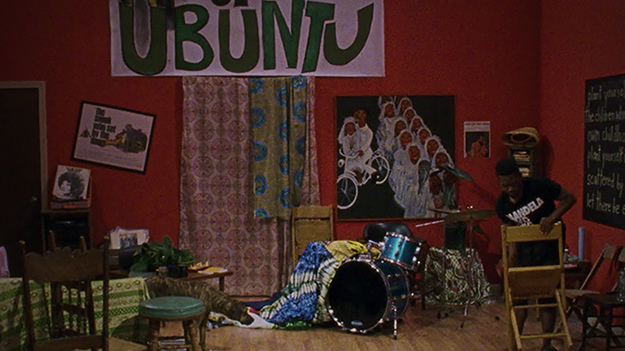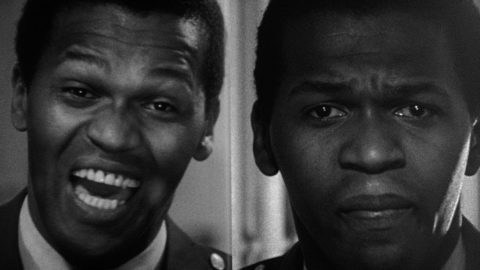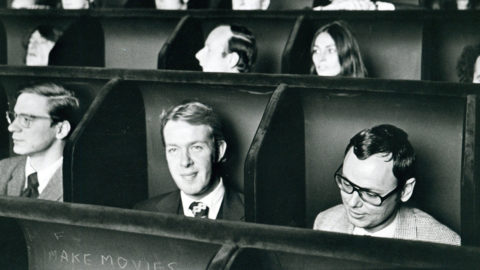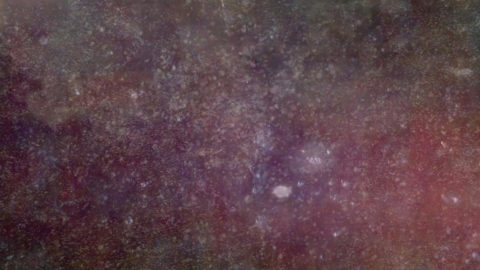An Image for 2022: The Inheritance
This article appeared in the January 6, 2022 edition of The Film Comment Letter, our free weekly newsletter featuring original film criticism and writing. Sign up for the Letter here.

The Inheritance (Ephraim Asili, 2021)
If there’s one film image from last year that I’m holding on to as an emblem for 2022, it’s that of the protagonist of Ephraim Asili’s The Inheritance, Julian, cleaning up the living room of the house where he and his friends have established a collective. They’ve just wrapped up a reading by the poet Ursula Rucker—the first in a series of political art events they plan to host in the “House of Ubuntu,” as they’ve christened it. The now-empty, disheveled room feels heavy with the sense of desolation that usually follows a communal encounter with art: the melancholy of returning to the real world, to our atomized existences, and to the prosaic labor (like cleaning up) that facilitates and sustains such poetic encounters.
Even as The Inheritance revels in the romance and the revolutionary promise of art, it foregrounds the material and interpersonal imperatives that these intoxicating visions often elide. The day-to-day exchanges surrounding the making and sharing of art—the arguments, the painstaking decisions, the resentments, the missteps, the chores—are in themselves creative and even utopic in Asili’s film. For the characters, film, music, literature, and the rest are all means to realize a certain ideal of social and collective life, instead of life and its relationships contorting to the needs of producing art. As the film world comes to terms with two years of the pandemic, and the need for a truly mutual film culture grows more urgent, I hope to see many more such visions of cinema both on- and off-screen: visions that deploy this art form not as an escape from our shared world but as an entryway into its glorious muck.







